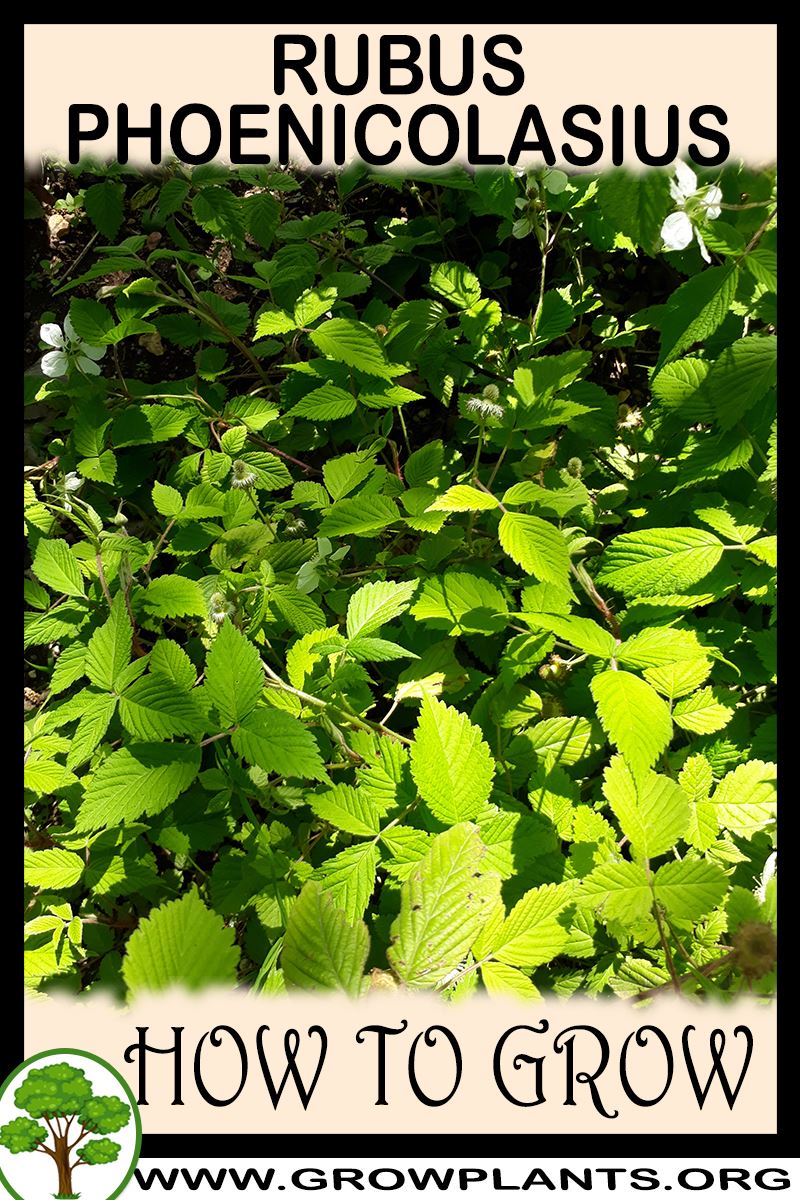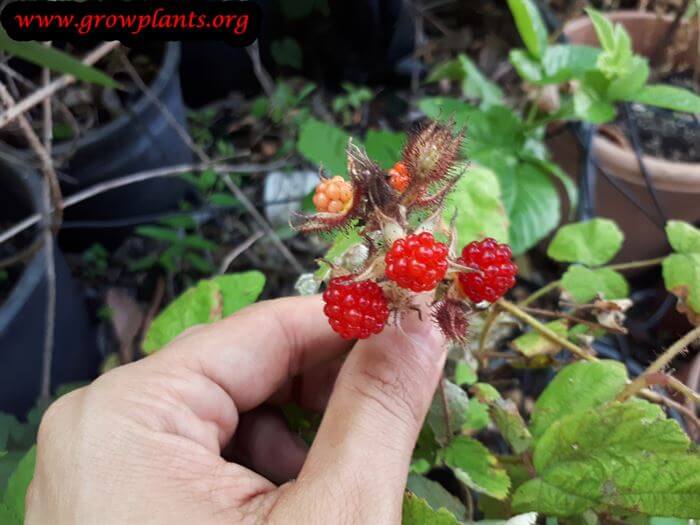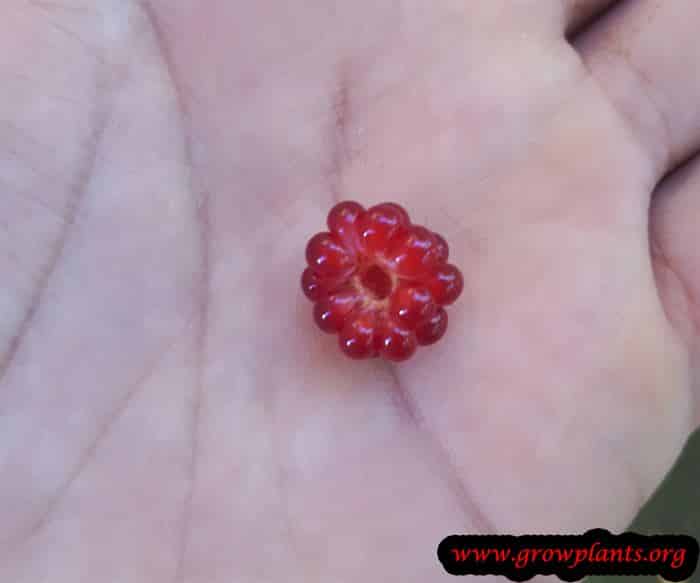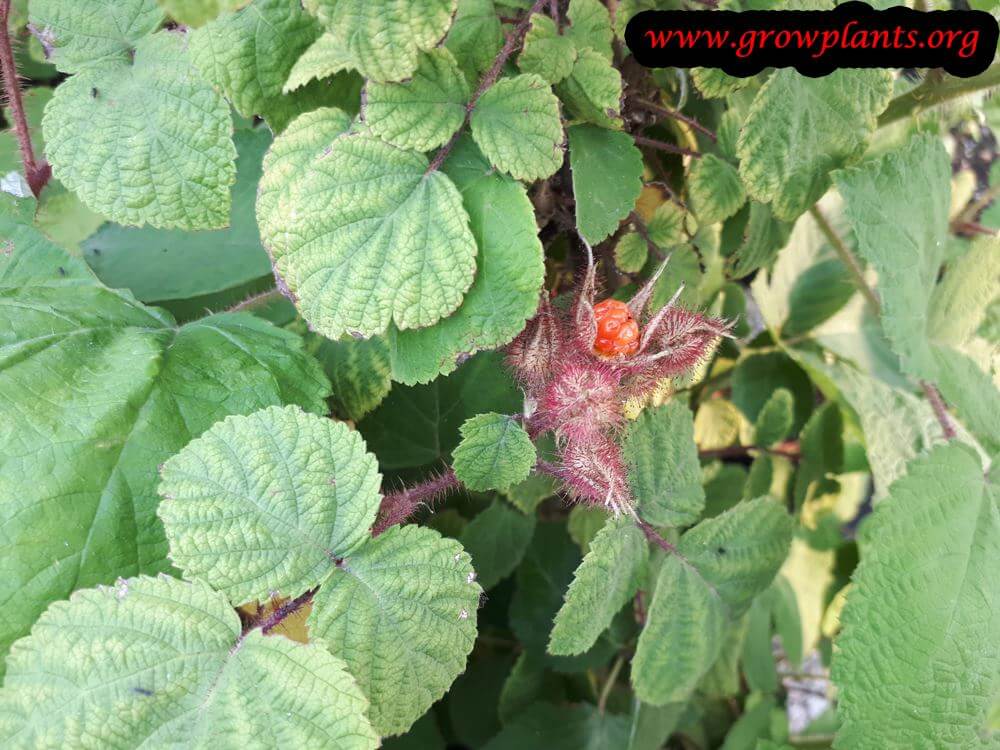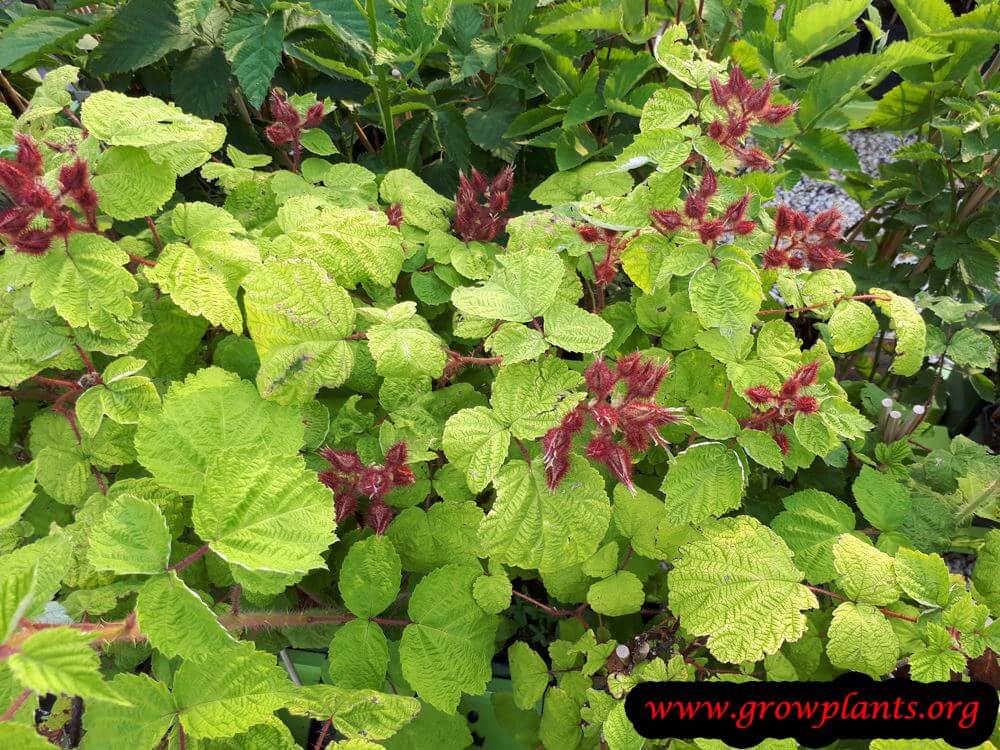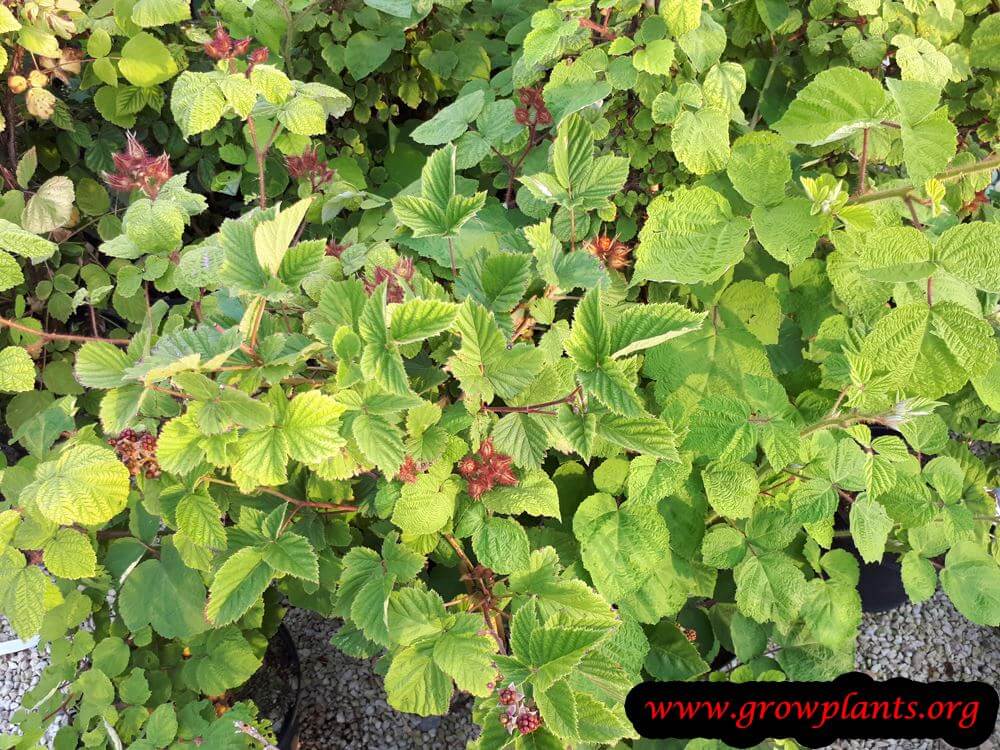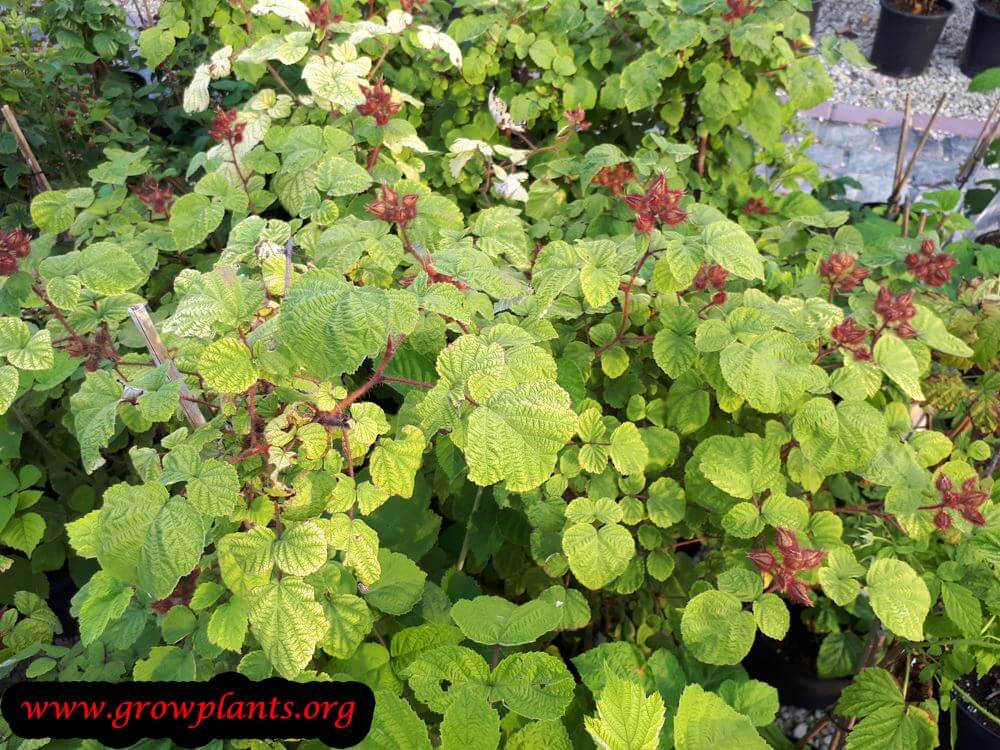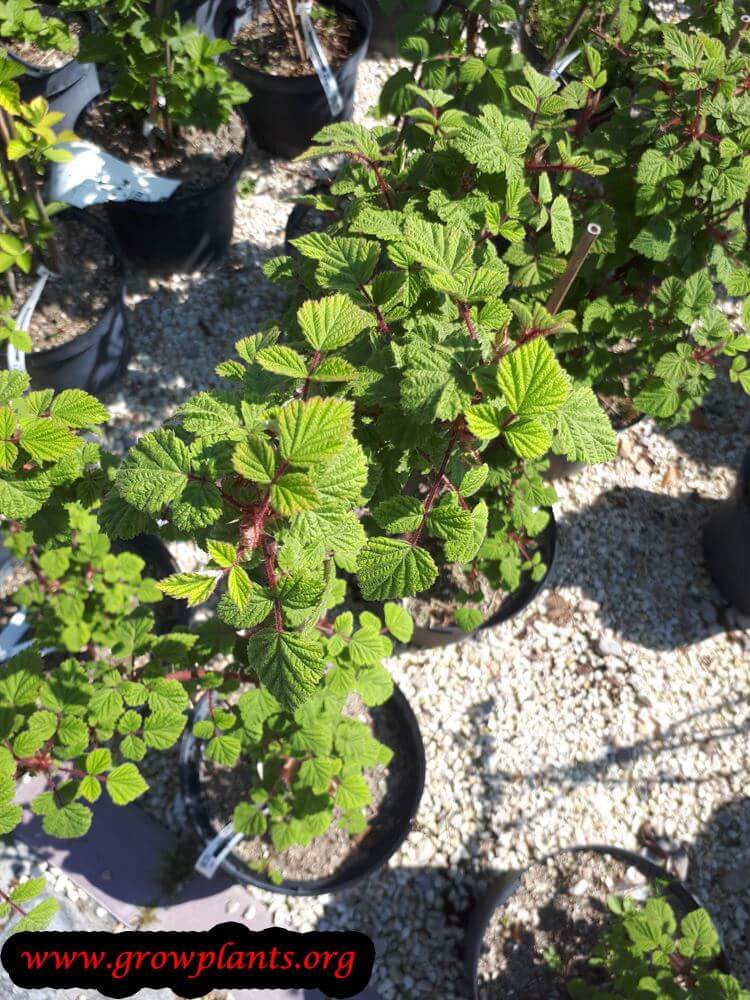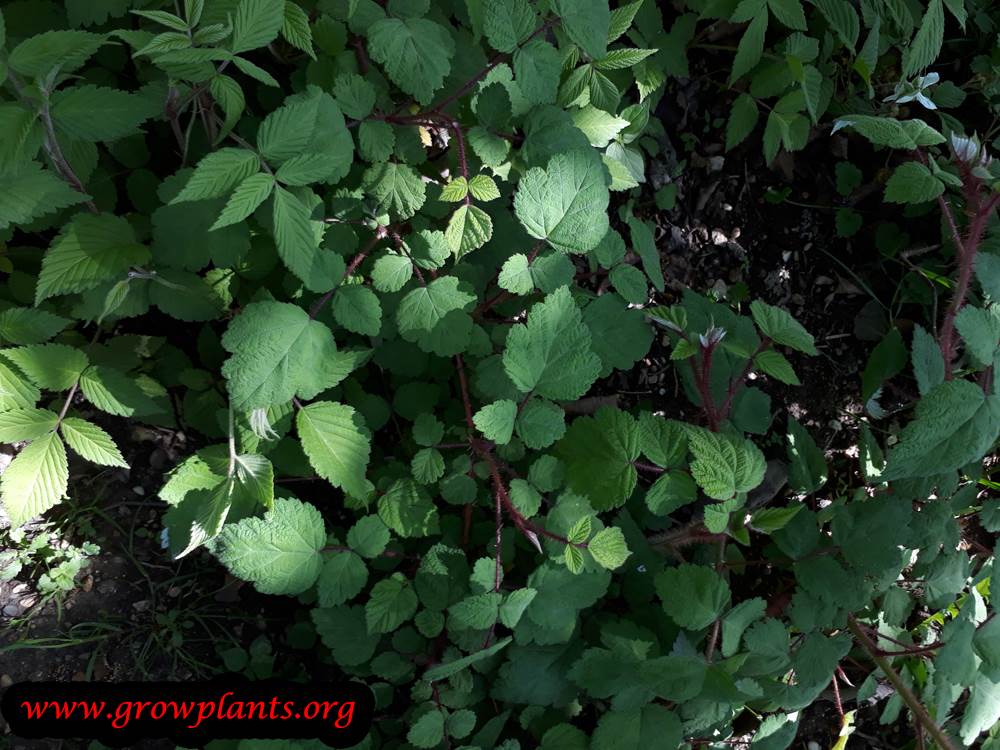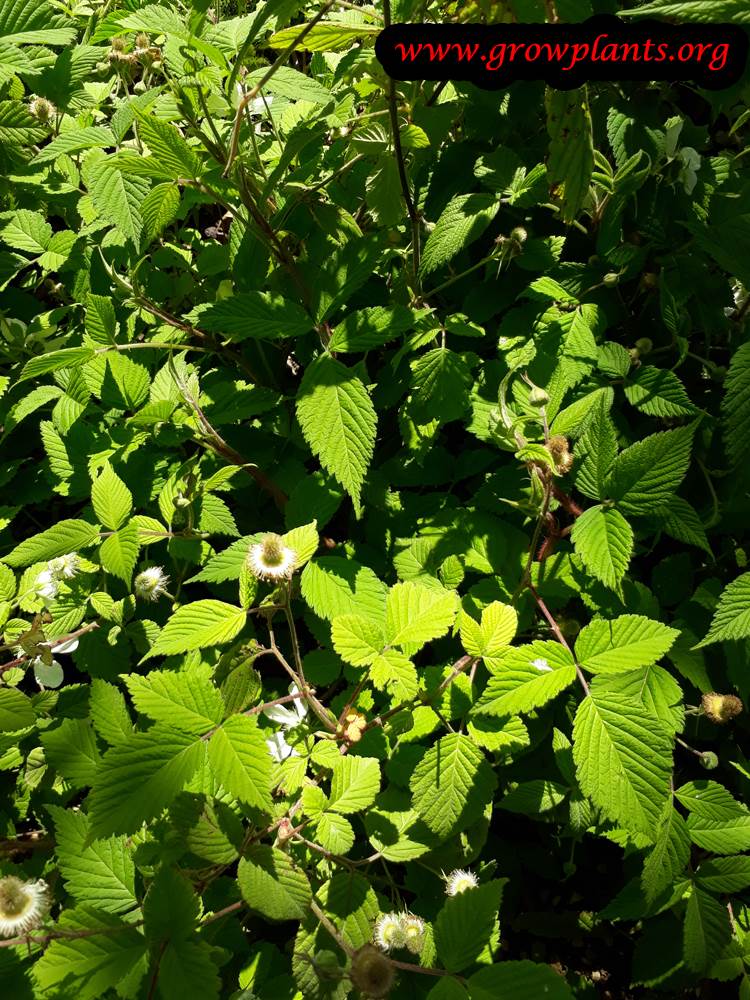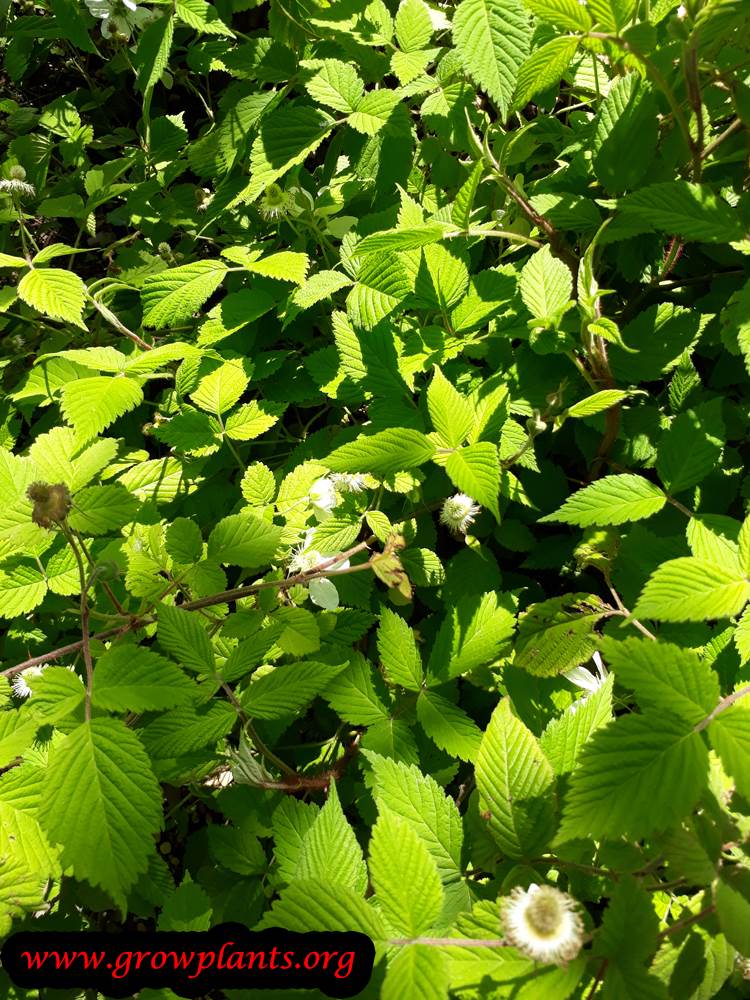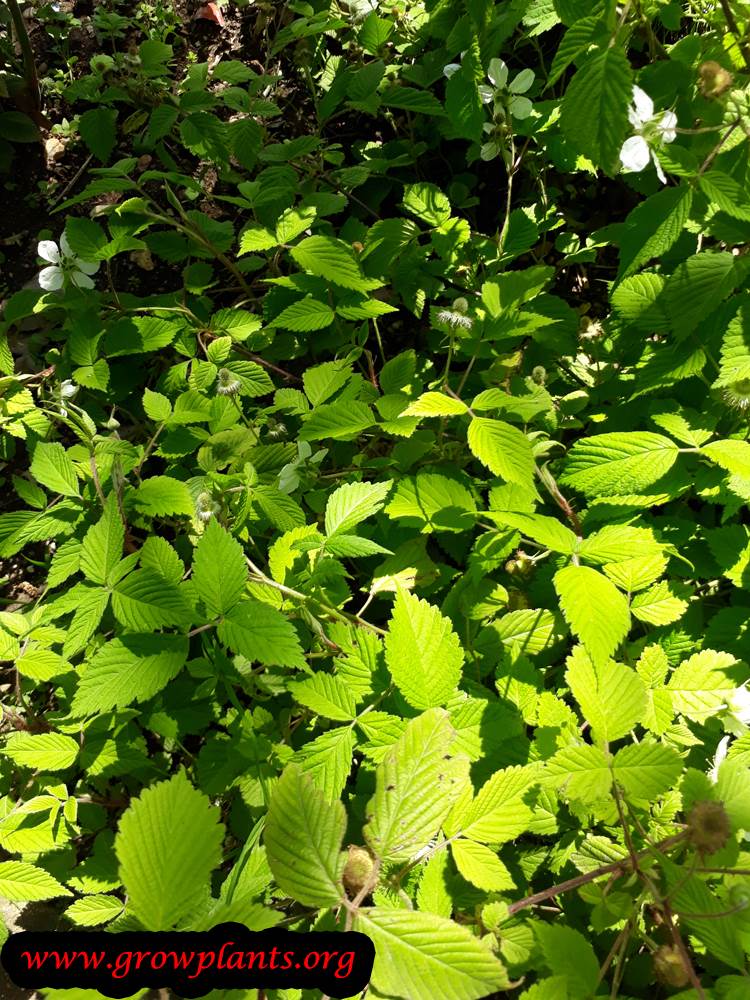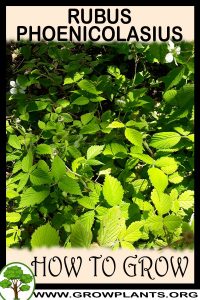
Rubus phoenicolasius grow and care – creeping vine of the genus Rubus also known as Wineberry vine, Rubus phoenicolasius perennial deciduous or evergreen plant mostly used as ornamental plant for hedge, can grow in temperate, subtropical climate and growing in hardiness zone 4-10a and in the right summer care in hardiness zone 10b
Leaves color green, the leaves small with 5 lobes the edges are round the base of the leaf is hairy.
Flower color white, the flowers grow in clusters.
Rubus phoenicolasius edible fruit
Fruit color red to black with semi hairs on the fruits, the fruit assembled from small cells that put together a round shape.
Rubus phoenicolasius for sale – Seeds or Plants to Buy
How to grow Rubus phoenicolasius – growing and care:
Well drain soil, rich soil
How to care:
Prune for easy harvest, prune once a year better after the fruits, add fertilizer in the early spring put mulch and organic matter
What is the best way to start growing?
Plant /Vegetative Reproduction / Seeds possible but not recommend
Is it necessary to graft or use vegetative reproduction?
Necessary to use vegetative reproduction
Difficulties or problems when growing:
Need a lot of space to bear enough quantity of fruit
Recommended planting season?
Winter, spring, summer
How to plant:
Dig hole bigger than the root ball at least 50-100% bigger, add dead leaves rich soil, organic matter, humus and mix all together and plant it, also recommend to put stick or something to support the plant for trellising
Pests and diseases:
Aphids
Pruning season:
Autumn
How to prune:
Old branches after bearing fruits should leave something like 5 cm from the ground
Size of the plant:
1-3m, 3-10 feet
Growth speed in optimal condition:
Medium growing
Water requirement:
Average amount of water
Light conditions in optimal condition for growing:
Full Sun
Is it possible to grow indoor as houseplant?
No
Growing is also possible in a pot / planter /flowerpot / containers:
Yes, start with pot that will be 40-60% more than the root ball, every time that the plant arrive to full capacity need to switch to bigger until arrives to desirable size, switch the soil in mid of the winter, better to use this method because the soil lose the viability over time and it’s efficient care for the soil, need average amount of water with good drainage better water with less minerals, in order to keep the soil moist better to put mulch of pines, peat soil or other acid soil with humus and a lot of organic matter.
Blooming information
Bloom season:
Spring
General information about the flower
White flower, 1 cm, with 5 petals
Thinning the bloom:
Until the plant to become acclimatized
Pollination is done by:
Bees and more
Edible fruits
Fruit harvest season:
Summer to early autumn
Fruits pests or diseases:
Birds, slug
What can be done with big quantities of Rubus phoenicolasius fruits?
Eaten raw, cake, cooked, juice
Work requirements on the fruit:
No special requires
How long does it take to bear fruit?
2-3 years
Ripening of fruit
Possible not to pick it fully ripen and let it to be ripen at home
Scientific name:
Rubus phoenicolasius
Alternative names: Japanese Wineberry, Wine raspberry, Wineberry, Dewberry
Categories
| Blooming Seasons |
|
|---|---|
| Edible Parts |
|
| Culinary uses |
|
| Flower colors |
|
| Climate |
|
| Harvest Season |
|
| Ornamental parts |
|
| Plant growing speed |
|
| Plant life-form |
|
| Plant Uses |
|
| Planting Season |
|
| Plants sun exposure |
|
| Watering plants |
|
| Hardiness zone |
|


